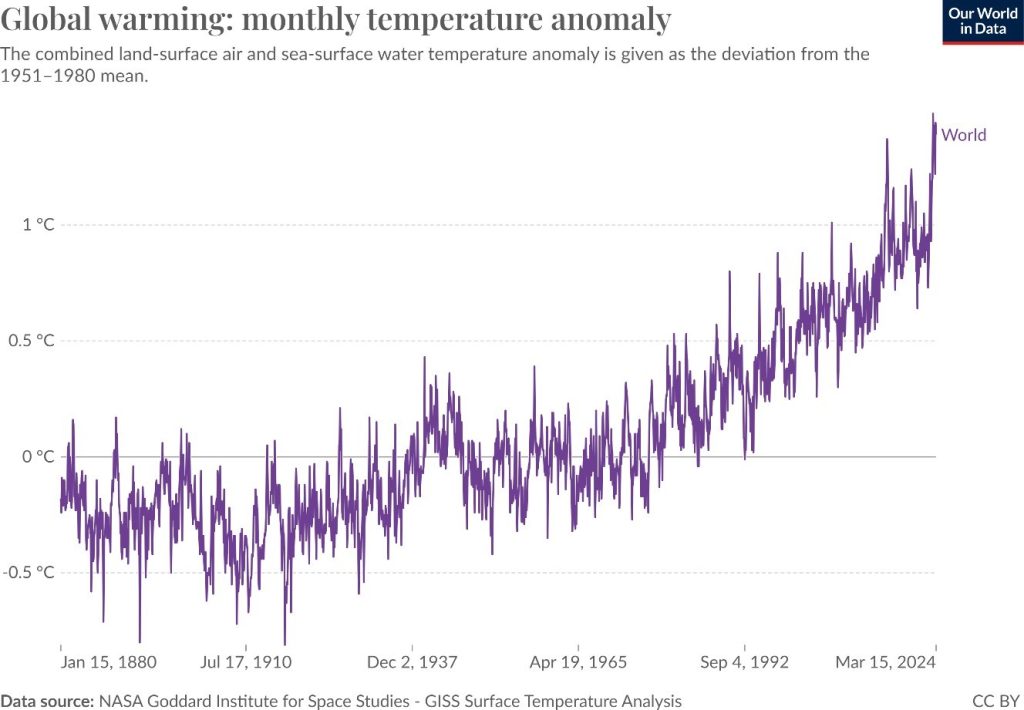How Carbon Emissions are Wreaking Havoc on Our Health
Our environment and health are directly linked, and today, the health of billions of people is endangered due to carbon emissions. Carbon emissions resulting from human activities such as burning fossil fuels, deforestation, and industrial processes have become an urgent global issue. This, in turn, is affecting our health in profound and different ways.
Although the direct impacts of carbon emissions, such as climate change and global warming, are well known, their direct and indirect impacts on our health are often overlooked. The health impacts of carbon emissions are pervasive and severe, including respiratory conditions, mental health issues, etc.
By 2030 and 2050, climate change is predicted to cause approximately 250,000 additional deaths per year, according to the World Health Organization (WHO). Climate change due to carbon emissions can wreak havoc on the planet. Scientists are raising the alarm about climate change as the greatest threat to human health in history.
Here is a closer look at the ways carbon emissions affect our health:
Air Pollution
One of the most immediate and known impacts of carbon emissions is air pollution. Carbon emissions contribute to the formation of ground-level ozone (smog) and particulate matter. The particulate matter in the polluted air penetrates the lungs and heart, even entering the bloodstream, causing strokes and heart attacks. These pollutants can also irritate and inflame the respiratory system, aggravating conditions such as asthma, bronchitis, and chronic obstructive pulmonary disease (COPD).
Air pollution also negatively affects people with allergies. The presence of carbon dioxide increases the acidity of the air, pulling more pollen out from plants. This means people with allergies face long bouts of seasonal allergies.
As a result of long-term exposure to air pollution, people have been found to suffer from more severe health conditions, such as lung cancer, heart disease, stroke, and premature death.
Extreme Weather Events
Climate change, which is due to carbon emissions, has intensified extreme weather events such as heat waves, hurricanes, and droughts. These events have a direct negative effect on our health.
Heatwaves are deadly and can lead to health-related diseases such as heat exhaustion and heatstroke. Heat can break down muscles; when it is hot, the body finds it difficult to cope, so the heart muscles and cells die and degrade. Prolonged exposure to extreme heat and the inability to adequately release the heat can cause an increased workload for the heart while sweating from heat releases necessary minerals such as sodium and potassium. This combination can result in heart attacks and strokes. Dehydration from heat can also cause severe damage to the kidney. Hurricanes and floods too can cause injuries, displacement, and mental health issues due to trauma and loss.

The chart above shows the increase in global warming all over the world between year 1880 till March, 2024. The chart shows a rapid increase in the world temperature.
Infectious Diseases
The hotter our planet gets, the easier the spread of vector-borne diseases like malaria, dengue fever, Lyme disease, and Zika virus. Climate conditions such as temperature and humidity can affect mosquito lifecycles. Climate changes can also adjust the range and seasonality of allergens, leading to increased allergies and asthma attacks.
Climate change can also increase the risk of water-borne diseases like cholera, typhoid fever, and parasites.
Food and Water Insecurity
One less direct but harmful way climate change can affect health is by disrupting food and water supply. Climate change affects food availability, leading to food shortages and malnutrition. Crop yields have started declining due to Extreme weather events, changing precipitation patterns, and rising temperatures. Studies have also shown that increased atmospheric carbon dioxide can provide plants with zinc, iron, and protein nutrients necessary for human survival.
A variety of illnesses are associated with malnutrition, including heart disease, cancer, and diabetes. Furthermore, it can affect children’s cognitive function by stunting or impairing their growth.
Additionally, changes in precipitation patterns can result in droughts and water scarcity, affecting clean water and sanitation. This can lead to dehydration and water-borne diseases.
Mental Health
A typical result of any climate-linked disaster is the effect on mental health. The indirect effects of climate change, such as natural disasters, loss of livelihoods, and displacement, can have significant mental health consequences. Anxiety, depression, post-traumatic stress disorder (PTSD), and suicidal thoughts are common among individuals affected by climate-related disasters or environmental degradation.
Loss of homes. Jobs and sometimes the loss of loved ones, which are sometimes a result of climate-related disasters, take an immediate toll on mental health. Extreme weather events like wildfires and hurricanes cause so much stress and anxiety that it can cause post-traumatic stress disorder and even suicide in the long run.
Environmental Degradation and Ecosystem Disruption
Loss of biodiversity and degradation of ecosystems due to climate change can impact human health indirectly by disrupting ecosystem processes such as pollination, water purification, and disease regulation. Healthy ecosystems are essential for our health and well-being and their degradation can lead to various health issues.
Conclusion
The effects of carbon emissions on our health are multifaceted and broad, affecting individuals, communities, and entire populations. Addressing carbon emissions and mitigating climate change is critical for our health and well-being and future generations. Transitioning to renewable energy sources, promoting energy efficiency, adopting sustainable agricultural practices, and implementing policies to reduce greenhouse gas emissions are essential in protecting our health from the adverse effects of carbon emissions. We must recognize the connection between our environment and health and take collective actions to create a healthier and more sustainable future.
References
https://ourworldindata.org/explorers/climatechange?facet=none&Metric=Temperature+anom aly&Longrun+series=false&country=OWID_WRL~ATA~Gulkana+Glacier~Lemon+Creek+ Glacier~OWID_NAM~South+Cascade+Glacier~Wolverine+Glacier~Hawaii~Arctic+Ocean











Leave a Reply